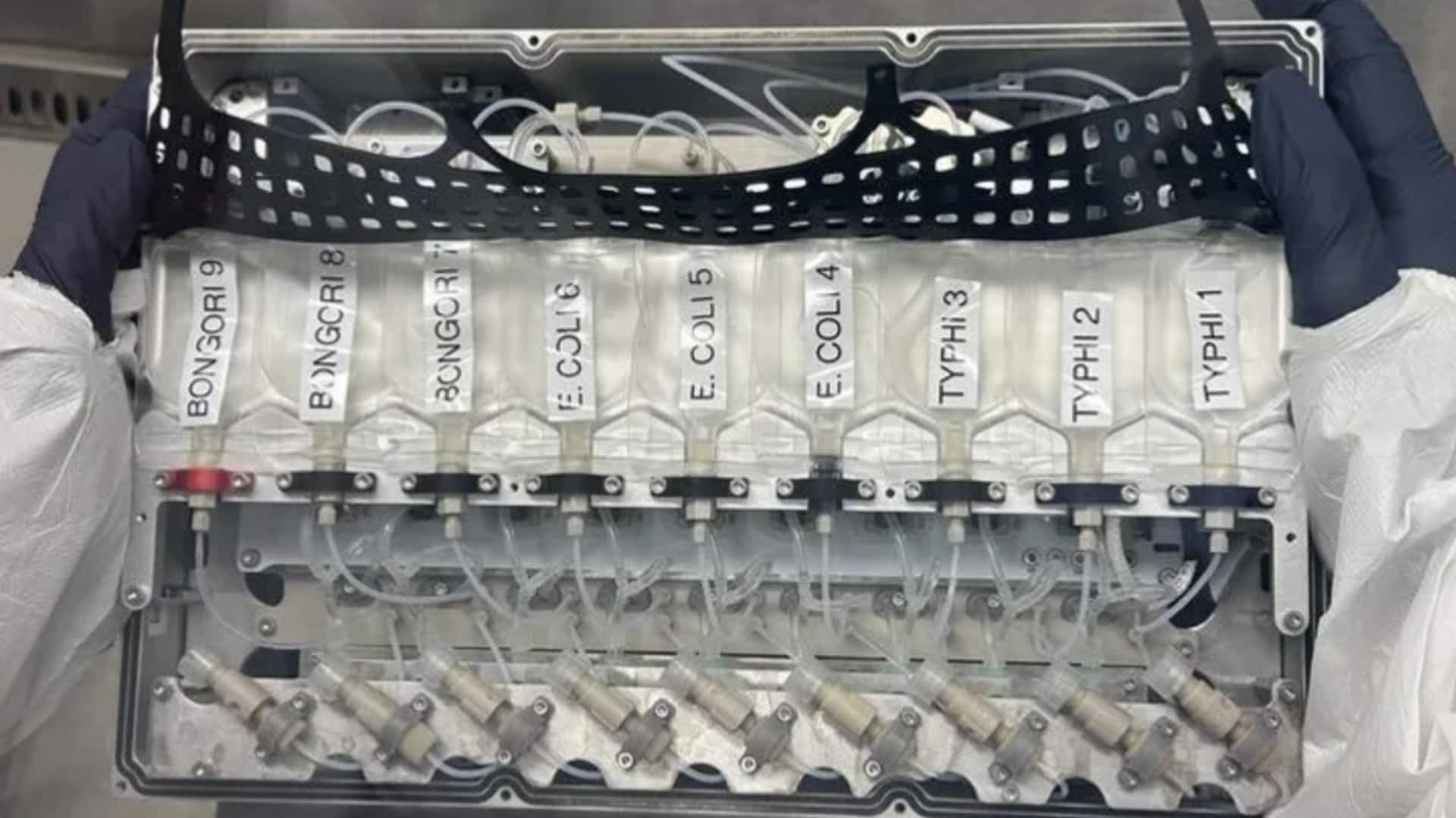
NASA's Crew-11 mission to study how bacteria behave in microgravity
What's the story
NASA's latest mission to the International Space Station (ISS) involves a unique experiment with disease-causing bacteria. The Crew-11 mission has carried several strains of bacteria, including Escherichia coli and those that cause diseases like typhoid fever and Salmonella, to the ISS. The study is being conducted by Sheba Medical Center in Israel and US-based company Space Tango. The goal is to learn more about how these pathogens behave in extreme environments like space.
Experimental design
Comparing bacteria grown on Earth and ISS
As part of the research, the different bacterial species will be allowed to grow in a zero-gravity environment. Afterward, they will be brought back to Earth and tested against their counterparts grown simultaneously in similar lab conditions on Earth. This comparative study could provide valuable insights into how bacteria behave and adapt in space, particularly under extreme conditions like microgravity and radiation exposure.
Broader implications
Research could help tackle antibiotic-resistant superbugs
The research could have implications beyond space missions. With the rise of antibiotic-resistant superbugs, this study could provide insights into how to tackle these more resilient bacterial strains. "This experiment will allow us, for the first time, to systematically and molecularly map how the genetic expression profile of several pathogenic bacteria changes in space," said Ohad Gal-Mor, head of Sheba's Infectious Diseases Research Laboratory.